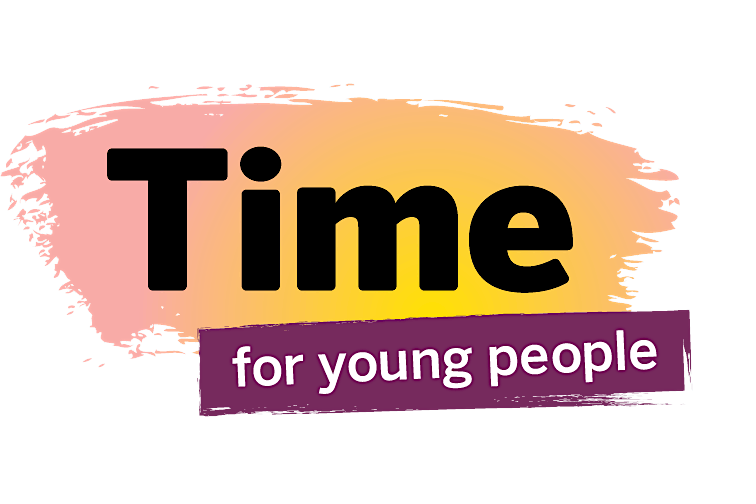Basic Life Support - Level 2 (CSTF Refresher) - London (Westminster)
Schedule
Wed, 05 Jun, 2024 at 03:00 pm to Wed, 25 Jun, 2025 at 05:00 pm
UTC+01:00Location
Friends Meeting House | London, EN

About this Event
This classroom-based CSTF adult resuscitation training course is crafted for a broad spectrum of healthcare professionals, including doctors, nurses, and other support staff engaged in healthcare environments. It specifically caters to those who work with adult patients and need to be proficient in adult basic life support techniques as an integral part of their job responsibilities.
Level 1 - This category includes non-clinical staff whose training needs are determined by local risk assessments or their specific work context.
Level 2 - This level is tailored for staff directly involved in clinical care, including all qualified healthcare professionals.
Course contentThe CSTF Basic Life Support (Adult Resuscitation) Practical - Level 2 course encompasses comprehensive and critical topics necessary for the effective response to emergencies, including:
National guidelines and local resuscitation policies:
- A detailed review of the most current Resuscitation Council UK guidelines alongside local policies ensures learners understand the legal and professional frameworks governing resuscitation practices.
Clinical deterioration and cardiorespiratory arrest:
- Training in identifying the early signs of patient decline towards clinical deterioration or cardiorespiratory arrest, emphasising the critical window for intervention to prevent adverse outcomes.
Chest compressions and lung ventilation:
- Hands-on techniques for performing high-quality chest compressions and effective lung ventilation, including the ratio, depth, and frequency required to maximise the chance of survival in a cardiac arrest scenario.
Automated external defibrillators (AEDs):
- Comprehensive instruction on the correct selection, placement, and operation of AEDs, with practical exercises to build confidence in using these life-saving devices under pressure.
Management of choking:
- Strategies and procedures for promptly recognising and responding to choking incidents, employing techniques such as back blows and abdominal thrusts to clear the airway obstruction safely.
Recovery positions:
- Training on correctly applying recovery positions, facilitating open airways and preventing aspiration, tailored to different patient circumstances and aligned with Resuscitation Council UK guidelines.
Simulated resuscitation scenarios:
- Participants engage in simulated emergency scenarios that mimic real-life situations. These scenarios are designed to test and refine the application of learned skills under pressure, ensuring readiness for actual clinical emergencies.
Ethical considerations in resuscitation:
- Discussion on ethical dilemmas and considerations in resuscitation, including respect for patient autonomy and understanding when it might be appropriate to initiate or withhold resuscitation efforts based on DNACPR orders.
Communication and teamwork during emergencies:
- Focus on the importance of effective communication and teamwork among healthcare professionals during emergencies, including clear role definitions and standardised communication tools like SBAR (Situation, Background, Assessment, Recommendation).
Post-resuscitation care:
- Guidelines on providing care after resuscitation, addressing the patient's physical and emotional needs, and considering transferring to higher levels of care if necessary.
This course is designed to give healthcare professionals the knowledge, skills, and confidence they need to handle emergencies with adult patients efficiently and maintain the highest care and safety standards.
The course content follows Resuscitation Council UK guidelines and meets the UK Core Skills Training Framework (CSTF) standards for healthcare providers. This ensures the training is thorough, meets all regulatory requirements set by the CQC, Care Inspectorates, and other bodies, and is suitable for everyone in health and social care.
Course aimsThis CSTF adult resuscitation face-to-face course aims to equip participants with the skills and knowledge required to anticipate, identify, and respond to signs of clinical deterioration in adults. It ensures the timely prevention of further decline and effective response to cardiorespiratory arrest. It emphasises the importance of early and effective resuscitation and the need for healthcare organisations to have a clearly defined resuscitation policy.
Learning objectivesThe learning objectives of this CSTF basic life support practical course are to:
- Review resuscitation protocols
- Provide an in-depth review of the latest Resuscitation Council UK guidelines and local resuscitation policies, ensuring participants' practices align with national adult basic life support standards.
- Simulate clinical deterioration recognition and response
- Through simulation exercises, the course will enable participants to practice identifying signs of clinical deterioration in adult patients and escalate care according to local policy, aiming to prevent progression to cardiorespiratory arrest.
- Conduct resuscitation technique workshops
- The course will offer hands-on workshops where participants practice initiating emergency responses for adult patients, including effective chest compressions and lung ventilations, as the Resuscitation Council UK recommended.
- Operate AED training sessions
- Participants will receive practical training on safely and competently using Automated External Defibrillators (AEDs), learning to attach and operate the device properly during resuscitation scenarios.
- Explore roles and responsibilities in emergency care
- The course includes sessions on understanding and executing the roles and responsibilities of healthcare professionals during emergencies, emphasising accurate reporting and recording of emergency events.
- Discuss DNACPR policies and anticipatory care decisions
- Participants will engage in discussions and case studies concerning applying the local Do Not Attempt Cardiopulmonary Resuscitation (DNACPR) policy and anticipatory care decisions within clinical contexts, focusing on ethical considerations and patient-centred care.
Upon completing this CSTF adult resuscitation classroom course, participants will be able to:
- Recognise cardiorespiratory arrest.
- Know how to summon immediate emergency help in accordance with local protocols.
- Start CPR using chest compressions.
- Locate and operate an AED.
- Understand national guidelines and local resuscitation policies and procedures.
- Know how to recognise and respond to patients with clinical deterioration or cardiorespiratory arrest, escalating care following local policy.
- Initiate an appropriate emergency response, which may include management of choking and the use of the recovery position, all per current Resuscitation Council UK guidelines.
- Initiate and maintain effective chest compressions following current Resuscitation Council UK guidelines.
- Provide basic airway management, i.e. ensure an open airway.
- Initiate and maintain effective lung ventilations per current Resuscitation Council UK guidelines.
- Know how an automated external defibrillator (AED) can be operated safely and appropriately.
- Understand their individual role and responsibilities in responding to persons in emergencies.
- Understand their individual responsibilities in reporting and recording details of an emergency event accurately.
- Understand the importance of undertaking any resuscitation interventions within the limits of their personal capabilities and the context of any previous training received.
- Know how they should apply the local Do Not Attempt Cardiopulmonary Resuscitation Policy/anticipatory care decision within the clinical context.
*These learning outcomes draw from the Resuscitation Council UK guidelines, recommendations from the CSTF framework, and regulatory requirements. They guarantee that participants will learn vital techniques and knowledge for responding to emergencies effectively. Additionally, learners will understand their important roles and responsibilities in the wider scope of patient care and safety.
Accreditation and CertificationThis CSTF Basic Life Support (Adult Resuscitation) Practical - Level 2 course is externally peer-reviewed and accredited by the CPD Certification Service. This certification contributes 3 hours towards CPD/CME/CNE requirements.
Participants will receive a CPD certificate that fulfils the standards required by HealthTrust Europe (HTE), Crown Commercial Services (CCS), and the NHS Collaborative Procurement Partnership (CPP), ensuring it meets the comprehensive and relevant training needs.
Why is the course important?The CSTF adult resuscitation practical course is vital for healthcare professionals. It gives them the skills needed to handle emergencies quickly and effectively. It's vital for patient safety and upholding the highest care standards in healthcare settings.
The course focuses on early detection of clinical deterioration and seeks to boost patient outcomes and compliance with professional standards. It aligns with NHS frameworks (HTE, CCS, CPP) and UK CSTF and Resuscitation Council UK guidelines. It offers in-depth training for NHS and private sector staff to enhance healthcare quality.
Where is it happening?
Friends Meeting House, 52 Saint Martin's Lane, London, United KingdomEvent Location & Nearby Stays:
GBP 49.99



















